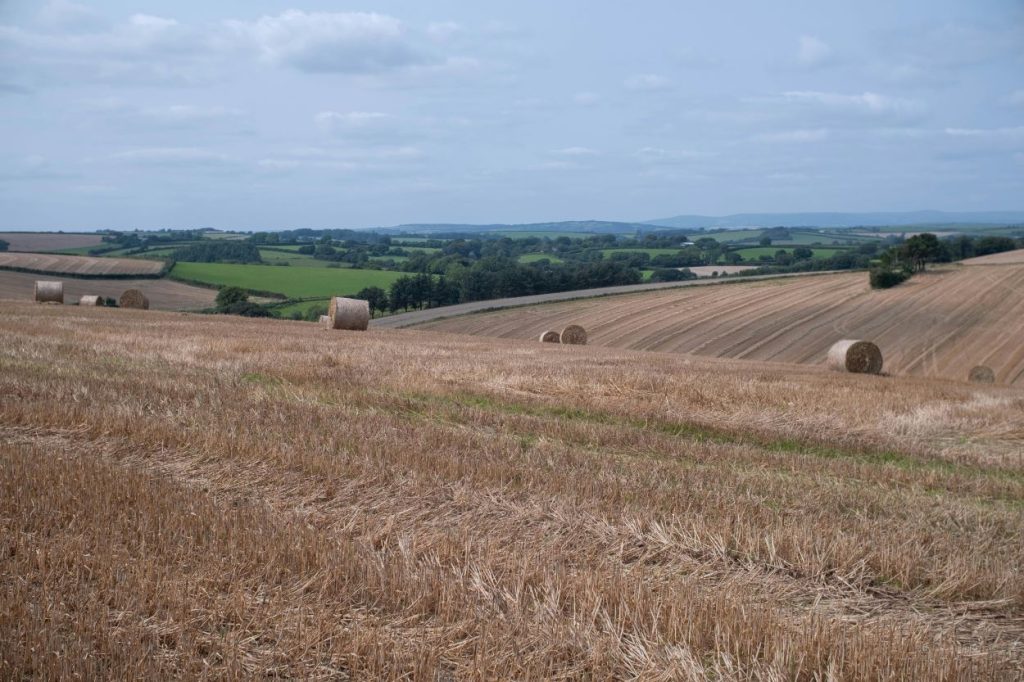A guide to owning a leasehold property
13 October 2022
We have produced this very general guide to assist you when considering the purchase of leasehold property and not with the intention of putting you off!
There will be many variations on a theme and it all depends on the actual title and the terms of the lease you are looking to purchase.
This guide is also in the context of residential leases, which may be of a flat or house.
We also recommend the following website which is run by the Leasehold Advisory Service and is a useful source for any general research you may wish to carry out or for raising frequently asked questions: www.lease-advice.org
First off, we are unable to advise on the following work types associated with leases:
• Park homes
• Shared ownership leases
• Advice and process on statutory leasehold extension or enfranchisement (whether of a flat or house)
But in the latter instance, we are able to make a recommendation and, on occasions, we work hand in hand with an appropriate expert where the purchase of a leasehold property involves co-ordination of a sale/purchase with statutory leasehold term extension.
Some General Background
• Generally speaking, leasehold titles now account for:
o One fifth of all properties;
o Over one million properties;
o 46% of new build registrations (2016);
o 15% of new build houses sold (2016)
• The law relating to leasehold and related issues is the constant concern of government and in particular The Law Commission – this has recently become more “political” as a result of the leasehold mis-selling scandal involving the sale of new build leasehold houses with escalating ground rent provision and the grant of short term initial leases.
• According to the National Leasehold Survey 2016, 57% of people regretted buying leasehold property.
Leasehold property
• In essence, you are buying “a term of years” granted by a lease which sets out rights and obligations for the flat or house and some of these can prove to be onerous/outdated.
It is generally fair to state that an older lease may have been acceptable at the time it was granted but lending and other practices have developed over time but the lease remains the same and may not have been updated to keep track of those changes and practices. Generally speaking, there is no automatic right to update the lease but it is possible in certain limited cases.
• Leasehold title will never be as good as a freehold title, even if the term of years granted in the lease is 999 years.
• Difficulties can arise as to levels of service charge/works to be carried out/management issues/costs of and time in pursuing processes required by the lease and badly drafted leases can often give rise to disputes at some stage.
• Further, particular issues can arise in the context of leasehold retirement homes.
• You may need to seek the consent of a third party or third parties in order to carry out works to/alterations to/extension of the property you are acquiring and consent may not necessarily be given or may be given on terms that you are not in agreement with.
Additional documentation and costs arise where a licence to alter the property is required.
• You may require the consent of a third party to sell (often called a Licence to Assign) and any new owner of the property may be required to enter into additional documentation such as a Deed of Covenant (promise) by which the new owner promises to comply with the lease provisions on the part of the owner as if an original party to that lease.
• The term (of years) of the lease can be vitally important, particularly in the context of proposed lenders from time to time.
Many lenders impose a minimum requirement on the number of years left on the lease in order to lend.
This reflects another feature of owning a leasehold property – you are buying a term of years (let us say 125 years from 1st January 2018) and so initially this appears “attractive” but the clock will be ticking and the term of years will be reducing and so, at some point, will reduce to a term where buyers or lenders find the term remaining unacceptable.
• Subject to meeting the necessary criteria (which may of course change from time to time as new legislation is introduced), there may be a right to extend the term of the lease or to acquire the freehold interest (in this instance this may involve the cooperation of others which can be difficult to marshal) under differing statutory provisions depending on whether it is a flat or house that you own.
In many cases, you will need to be concerned if the term of years is already less than or approaching 80 years remaining and although you may well need to start the process well before there is 80 years remaining, the costs of extending the lease of a flat can increase (and possibly substantially) where at the relevant time you are looking to extend the term there is less than 80 years remaining.
• Quite often a monetary ground rent is payable. This may be a fixed amount for the whole term of the lease payable as required by it, or it may be subject to review (the escalating ground rent situation) by reference to the terms of the lease, which contains the machinery or reference points for that recalculation.
Sometimes the wording of a ground rent review clause may appear innocuous but the effect can be dramatic and therefore both lenders and owners of leasehold property will need to know that the ground rent will be reasonable and acceptable.
• The amount of the ground rent will also be a consideration when it comes to the calculation of the cost of paying for a lease term extension or enfranchisement (buying the freehold interest effectively).
• Service charge levels can also be an issue and remedies/challenges may not be possible depending on whether these are expressed as fixed or variable service charges.
• Some leasehold developments can be further complicated by the existence of Right To Manage companies or Residents/Leasehold Management Companies.
This can give rise to further “documentation” and can be a means by which additional obligations are imposed on leasehold property owners.
• Most leases will contain a fairly lengthy list of “regulations” which, as the owner of the property, you must comply with. These can often be varied and added to over the years and not all of them may be to your liking. Regulations which prevent or regulate the keeping of pets can, for example, be contentious for some owners. Equally, regulations relating to your ability to alter, decorate or let the property.
• A freeholder will be the person or body that owns the freehold interest (often called the freehold reversion) and may be referred to as the Freeholder/Landlord/Lessor.
Often the freeholder will have obligations in the lease and may be responsible for or delegate to a third party its duties regarding maintenance/repair/other management issues and/or the preparation of accounts and collection of ground rent and service charge.
Sometimes the ground rent is only payable to the freeholder and service charges to a Management Company or to managing agents acting on behalf of the freeholder or Management Company.
• In more complicated property structures, there may be a freeholder, an intermediate Landlord and then an Underlease for the property you are looking to buy. So arrangements can become more complicated as a result. As we say initially, it all depends on the development you are buying into.
• Sometimes as owner of a leasehold property, you may have a “share” in the freehold where the freeholder is constituted as a company, for example. That should be more comforting in that the leasehold property owners also have an interest in the running of the freehold company and, therefore, can collectively (or by majority) control their own destiny on levels of ground rent/length of leases/services charges etc. to a degree.
Where Do We Go From Here?
• On instructed matters, we will be looking to advise you on the title, and in particular, the lease which you are purchasing and will be providing a summary of the main provisions. You will receive a copy of the lease and any relevant related documentation in that respect.
• It is important to give yourself time to digest the arrangements overall.
• One might hope for the purchase of a lease originally granted for 999 years at a peppercorn ground rent (no monetary payment) and a “share” in the freehold interest as perhaps being an arrangement of choice.
• Lesser terms, the payment of ground rent and/or no share in the freehold will not of themselves be a reason for not acquiring the property but care needs to be taken so you are clear as to the overall arrangements.
Whether you are buying for the short term or as an investment or as a property to live in for the immediate future, you must be fully acquainted with and understand the arrangements provided for in the lease and, as far as is appropriate, your options for the future.
This may of course mean taking specialist legal advice in the future as to statutory lease term extension or possibly enfranchisement.
• You must always realise that it will be your responsibility to fully comply with the obligations of the lease imposed on you. In the event of dispute, take immediate specialist legal advice. Do not ignore notices or allow disputes or breaches to occur – a freeholder (or as the case may be) will normally have a right of re-entry: this is a freeholder’s ultimate remedy whereby you could lose the lease and ownership of the property, be removed from the property and not be compensated for the loss of ownership. The freeholder’s right of re-entry is a normal provision in residential leases and emphasises the need for compliance and specialist advice.
Ground rents above £250.00 per year (outside London) or £1,000.00 per year (in London) give rise to concerns in this area.
This area is subject to ongoing review by the government – with proposals to abolish monetary ground rents.
• When all is said and done, there is a raft of legislation (essentially the Law) surrounding leasehold properties and there are many “protections” favouring the leasehold property owner and the general law imposes duties on freeholders and other parties in certain areas, but you must understand what you are buying and essentially the lease is often the most important point of reference.
• There can be so much more and, of course, it is not possible to anticipate every scenario that might arise in the future.
• We strongly recommend the advice guides available from the Leasehold Advisory Service (see above) and, in particular:
o Living in leasehold flats – a guide to how it works.
o Right of first refusal.
o Right to manage.
o Section 20 Consultation for private landlords, resident management companies and their agents (proposed works).
o Leasehold extension – getting started.
o Collective enfranchisement – getting started.
o Summaries of rights and obligations – service charges – England.
o Summaries of rights and obligations – service charges – Wales.
Fire Safety (Flats and Houses)
A topic in itself! Much ongoing regulation and new rules to come for flats and houses.
Godwins Solicitors LLP
For General Guidance Purposes Only – January 2020
– Reviewed October 2021








